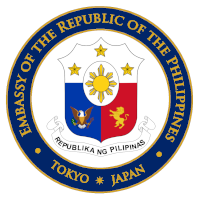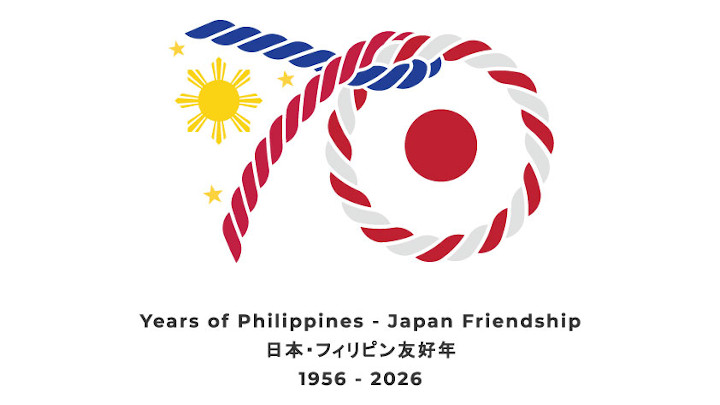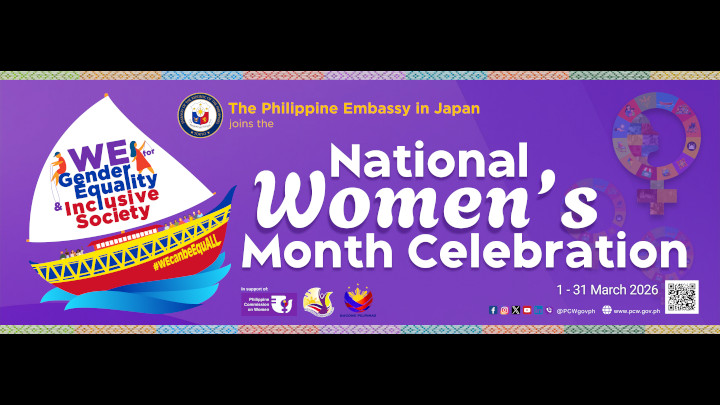Philippine Embassy works towards responding to needs of Filipinos in Japan
The Philippine Embassy in Tokyo has begun issuing the ePassport since 16 June 2010 to Filipino applicants within its jurisdiction. It is at a price that is comparable to, and in fact, one of the least expensive ePassports issued in the world according to a recent survey conducted by the Department of Foreign Affairs (DFA).
The Philippines charges its nationals a passport fee of PhP 950 (or US$21) for passport applications filed in the Philippines, which barely covers the actual cost of producing the Philippine electronic passport (ePassport) since much of the fee goes to printing, lamination, and similar production expenses. According to the survey conducted by DFA, the ePassport fee is way below those of other countries in Asia including Brunei (US$37), Malaysia (US$97), Cambodia (US$120), Singapore (US$52), and Japan (US$180).
The Philippine Embassy in Tokyo applies a schedule of consular fees prescribed by and consistent with the instructions of the Department of Foreign Affairs. In the case of ePassport applications, the ¥7,800 fee is consistent with these instructions and in fact less expensive when the relative costs of obtaining an ePassport in the Philippines and Japan are considered. Assuming an 8-hour workday and using the average minimum wage rates (¥713/hour in Japan and P50.5/hour in the Philippines), it would cost 10.93 working hours or 2.19 working hours per year (when the 5-year validity of the passport is considered) to obtain an ePassport in Japan. Meanwhile, it would cost 18.8 working hours or 3.76 working hours per year (when the 5-year validity of the passport is considered) to obtain one in the Philippines. The relative cost is therefore cheaper in Japan than in the Philippines.
Furthermore, compared to the cost of passport in Japan of other countries such as Thailand (¥9,000), Brazil (¥9,600), and the United States (US$140), the cost of a Philippine ePassport in Japan is less expensive.
Despite the challenges in implementing the ePassport project, DFA Secretary Alberto G. Romulo was still able to deliver a better passport which is ICAO-compliant at a cheaper price. It will be remembered that the old green passport in Japan used to cost as much as ¥10,500.00 until December 2007.
The new Philippine ePassport features an embedded integrated circuit chip that allows faster verification of the identity of the passport holder. In addition to the information found on the data page, it includes the biometric information of the holder, as well as a unique identification number. These and a host of other security features ensure that the ePassport is virtually tamper-proof, and compliant with the high security standards set by the International Civil Aviation Organization (ICAO). There are also more pages available in the new ePassport at 44 pages from the previous 32 pages in the regular green passport, providing savings to Filipino travelers.
“The ePassport is designed to facilitate arrival formalities and immigration checks at international airports, and thus less hassle for our kababayans when they enter other countries. It is also making possible faster airline travel arrangements. Most importantly, the security features of the ePassport prevent identify theft and tampering of the passport holder’s personal data,” the Office of the Consular Offairs of the DFA said.
The Philippine Embassy also handles with dispatch all the various assistance-to-national cases brought to its attention, especially those in distress, victims of domestic violence and abuse, and those awaiting repatriation.
The Embassy facilitates the issuance of travel documents and other necessary requirements for the repatriation of Filipinos in Japan. After the requisite period of evaluation and examination by relevant Japanese authorities, the Embassy coordinates with Immigration authorities for the appropriate documentation for repatriation. For the first semester of 2010, the Embassy issued 895 travel documents. In coordination with Immigration authorities, the Embassy further extends assistance in facilitating the documentation and repatriation for those with medical problems.
For the first semester of 2010, the Embassy was able to negotiate the waiver of approximately ¥5,700,000 in hospital and medical fees of distressed Filipinos. Through the Embassy’s coordination, some hospitals voluntarily provided doctors/nurses to accompany OFWs with medical conditions upon their repatriation to the Philippines.
The Embassy also works closely with relevant Japanese authorities, international organizations, NPOs, and Filipino community organizations in addressing the plight of Filipino victims of domestic violence and abuse. The Embassy assists in seeking shelters and filing the appropriate claims with the relevant authorities. If necessary, the Embassy ensures that access to legal counsel is provided.
The Embassy continues to actively monitor and address the issues and concerns of Filipinos in Japan, in line with supporting one of the pillars of Philippine foreign policy which is the protection and promotion of the welfare of overseas Filipinos and the directive of President Benigno S. Aquino III for “the government to be even more responsive to the needs and welfare of overseas Filipino workers.” END




























